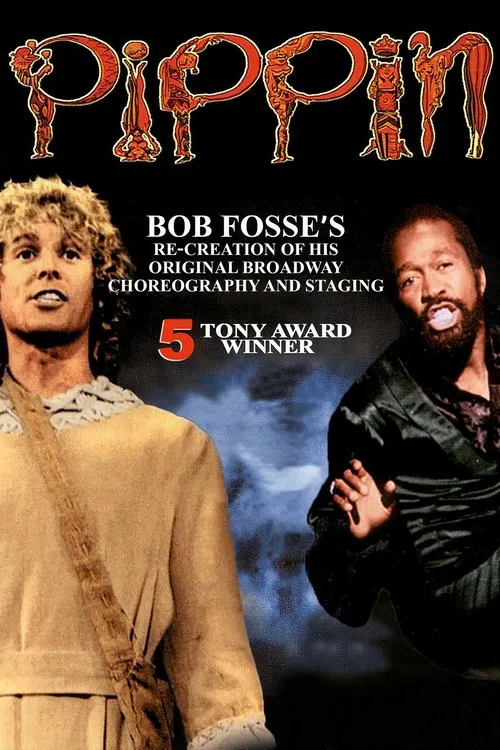Pippin

Plot
In the mesmerizing 1971 stage musical adaptation of "Pippin", the curtain rises on a charismatic troupe of traveling performers who weave a captivating narrative about the life of Pippin, the son of King Charlemagne. Led by the captivating and enigmatic Leading Player, this troupe, comprised of skilled acrobats, dancers, and singers, draws the audience into their vibrant world of music and drama. The story begins in the medieval era, where Pippin, the young prince, is searching for the meaning and significance behind his life. Growing up as the son of a renowned king, Pippin is under constant pressure to assume his rightful place as the heir to the throne. However, he finds himself disillusioned with the life of royalty and longs for excitement, romance, and a sense of purpose. As the Leading Player recounts Pippin's story, the audience is introduced to a series of pivotal moments in the prince's life. The first scene depicts Pippin's childhood, where he is indulged and adored by his parents and the nobles. However, Pippin's curiosity and desire for adventure soon lead him to defy his father's wishes and embark on a series of escapades. The performance is marked by dynamic and energetic dance numbers, showcasing the troupe's impressive acrobatic and gymnastic skills. One of the most striking sequences is "Corner of the Sky," where Pippin expresses his aspirations and dreams for a life beyond the confines of his royal duties. The poignant song captures the essence of Pippin's inner conflict and his desire for freedom and self-discovery. As the narrative unfolds, Pippin's journey leads him to seek guidance and wisdom from various mentors. One of the most iconic scenes features Pippin's meeting with the "Death" character, who serves as a catalyst for Pippin's introspection and self-discovery. However, Pippin's impulsiveness and naivety lead him to make a series of choices that have devastating consequences. The Leading Player's role serves as a sort of narrator and facilitator, guiding the audience through Pippin's experiences and providing insight into the complexities of human nature. Through the Leading Player's words, the audience is encouraged to reflect on the significance of life's challenges and the importance of learning from one's mistakes. Throughout the performance, the troupe's use of music, dance, and drama effectively conveys the emotional depth and complexity of Pippin's journey. The songs, written by Stephen Schwartz, are infused with a sense of longing and yearning, underscoring the themes of identity, purpose, and the search for meaning. One of the most memorable moments in the musical is the emotional and poignant number "With You," a duet between Pippin and his father, King Charlemagne. This heartfelt song captures the depth of their relationship and the struggles that they face in their interactions. The lyrics highlight the love and loyalty that bound them together, while also revealing the cracks in their relationship that have grown due to Pippin's quest for autonomy and self-discovery. As the performance reaches its conclusion, Pippin's story serves as a cautionary tale about the dangers of impulsive decision-making and the importance of seeking wisdom and guidance. Through the Leading Player's words, the audience is reminded that life is a precious gift, and that true fulfillment can be found in embracing one's passions and pursuing one's dreams with dedication and perseverance. The finale of the musical is nothing short of breathtaking, as the troupe comes together to recreate the story of Pippin's life in a kaleidoscope of color, music, and movement. The final scene, "Morning Glow," is a triumphant celebration of life and the possibility of new beginnings. In the end, "Pippin" remains a timeless and thought-provoking musical that continues to captivate audiences with its powerful narrative, engaging characters, and unforgettable music. The production's themes of identity, purpose, and self-discovery resonate deeply with viewers of all ages, inviting them to reflect on their own lives and the choices they make. As the curtain falls, the audience is left with a lasting impression of a young prince's search for meaning and significance, a journey that continues to inspire and captivate us to this day.
Reviews
Recommendations




